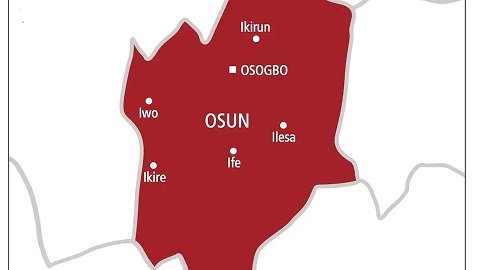[ad_1]
EVEN Ghana! When a huge tree falls, even a woman can climb it. (Óké ósísí dàruo ala, nwayin à ria ya élu) So say my Igbo people. The Yoruba have their own way of voicing this lamentation of a crash from the pinnacle: Tí ìyà nla bá gbe ni san’lè, kekere a ma g’ori eni (When massive vicissitudes of fortune cripples a man, minor issues would pile more misery upon him. These saying give a picture of what has become of Nigeria in the thinking and attitude of Ghana towards the demobilised giant of Africa. These are the feelings evoked by that saddening travel warning issued by Ghana to its citizens on Wednesday. It said those on non-essential travel to Abuja should shelve it, and hinged the warning on “security situation in Abuja.” Ghanaians were cautioned to be wary of travelling to Nigeria’s capital city!
Barely 24 hours after the outrageous statement, Ghanaian authorities promptly declared that the said travel warning was ‘unauthorised’. The country’s foreign affairs ministry said “the ministry is not aware of any threat targetted at Ghanaians who continue to live in harmony with their Nigerian brothers and sisters.” The counter-statement asked us not to worry about the former. It didn’t say the former statement was wrong or was untrue. It also did not tell us that it was contrived. It simply was just not authorised. The statement disowning the travel advisory came through like: ‘You have told the truth but you are not entitled to say it.’
As secondary school students in the late 1980s, we had Ghanaians all around us. I want to assume that they were all over the country. A la JP Clark’s Night Rain, Ghanaians were ‘drumming hard’ in Ibadan and in Umuahia ‘and perhaps everywhere’ else in the country. I had them as friends in Umuahia. I had them as friends in Ibadan. At Bodija, Ibadan, we rolled with Theophilus Addo. Theo as we called him was one of the best footballers among us. He was a clear favourite when we played Sunday sets at Olive Primary School in Bodija and he was a ready selection whenever we had football matches. Apart from his football skills, Theo was also in the athletics team of his secondary school. If my memory serves me right, he was in Mount Olivet Grammar School; otherwise it must have been the neighbouring Bishop Onabanjo High School. We had loads of fun as playmates and it never made any difference that he was one of us as a Ghanaian.
In Umuahia, my village brother, friend and classmate, Nduka Ngwakwe, had a Ghanaian teacher at his Ibeku High School. When I first heard her speak, the woman’s accent sounded very queer to me. Perhaps the accent was strange to me because I didn’t see her or interact with her as often as Nduka did as her student. Whenever I had an interaction with her, it was not uncommon that I would puff wind of suppressed laughter at her accent when she speaks to us and pass instructions. It was her pronunciation of some words… However, she was a happy woman but I saw a huge difference between her accent and that of Mr. Isaac Amah, the Ghanaian teacher we called ‘Malinger’ at my school, Holy Ghost Secondary Technical School, Umuahia. Amah was not just a teacher, he was a force because his physical size came handy when the need to enforce discipline among the boys arose. The boys, especially some seniors, could be headstrong, but it was always unwise to stand up to Mr. Malinger because of his size.
While we had those Ghanaians in our educational institutions, we also had lots of them on our streets toiling daily to make legitimate living. They were the “Sobata”, a crude term with which we called the itinerant cobblers. ‘Sobata’ as a term was so popular among us. As popular as the term was, Sobata was an unacceptable euphemism, especially to the Ghanaians. And they were everywhere too just like we have commercial motorcyclists from the northern part of the country today. Most of us who grew up in Ibadan in the 1990s should remember who a Sobata is and what they did. And they were good in the trade, unlike the mostly unskilled ones that have taken up the itinerant cobbler business today.
We also had them hawk their uniquely-coloured buns; and their golden-brown, oily, delicious puff-puff. They would line the round puffs neatly in show glasses with which they hawked the food. A Ghanaian buns or puff-puff is around when you hear the quick, intermittent click of metal on the hawker’s glass box – the sound could be made by an old fork with just two prongs left or a special metal skewer. The Ghanaian style of hawking this food caught others and created such replicas as the akara sellers by the same style (rush e) in the same era. Nigeria harboured Ghana in her time of need, even though the “Ghana-must-go” remains the blight in the relationship between the two countries.
That Ghana gave a travel restriction to its citizens on Nigeria is alarming and should be a pointer to the seriousness of the Nigerian security situation. It shouldn’t have been our smaller brother, Ghana. If it was by size, Nigeria is about four times the size of Ghana. Our population is a whale larger than that of the country while the economy of just Lagos State alone is bigger than that of Ghana. But they have tugged at our ailing arm. They have taunted the man with nine fingers by counting them right in his presence.
Ghanaians are not more patriotic than Nigerians. They do not have more self-pride than Nigerians have in issues of nationality. Where Ghana has left us on the canvass is in the area of leadership. We have a different texture to our patriotism as Nigerians simply because of the kind of captains that have steered the ship of Nigeria. Our country is sorely divided while that country has shown that they can begin to truly chart a course on their own. Most Nigerians cannot confidently applaud or chastise politicians in positions of leadership without ethnic or religious backlash. There would always be some clapback. This sad development became more pronounced in the recent past. Ghanaians always show their desire to upend us when they play Nigeria in any sport. Their determination to defeat us is legendary and records show that they still have the upper hand in the game of football. That Nigeria is not in Qatar to take part in the 2022 Fifa World Cup is as a result of Ghana.
ALSO READ FROM NIGERIAN TRIBUNE
[ad_2]








